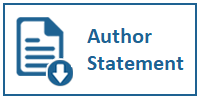Implementation of Support Vector Machine Method for Twitter Sentiment Analysis Related to Cancellation of u-20 World Cup in Indonesia
DOI:
https://doi.org/10.31937/ijnmt.v11i1.3673Abstract
The cancellation of the U-20 world cup in Indonesia in 2023 has become a hot debate among the Indonesian people because the reasons for the cancellation are still unclear. The number of pro and con opinions uploaded by the Indonesian people on twitter social media makes these opinions can be used as data to assess opinions which are divided into three categories, namely positive, negative and neutral. After being divided into three categories, sentiment analysis will then be carried out using the SVM method and comparing linear, polynomial and rbf kernels to get the best performance of existing kernels in the support vector machine method. By using confusion matrix to measure the performance of the classification, accuracy, precision, recall and f1-score can be assessed. It was found that the 80:20 data ratio had the highest accuracy of the linear, polynomial, rbf kernel and the rbf kernel had better results than the linear and polynomial kernels, namely Accuracy 78.15%, F1-Score, 76.30%, Precision 77.37% and Recall 75.58%. In addition, the data obtained also succeeded in analyzing Indonesian texts that were input externally and categorized into positive, neutral and negative. From the results that have been obtained, the support vector machine method has been successfully implemented in sentiment analysis of the U-20 world cup cancellation in Indonesia in 2023 on twitter social media
Downloads
Additional Files
Published
How to Cite
Issue
Section
License
Authors retain copyright and grant the journal right of first publication with the work simultaneously licensed under a Creative Commons Attribution-ShareAlike International License (CC-BY-SA 4.0) that allows others to share the work with an acknowledgement of the work's authorship and initial publication in this journal.
Authors are able to enter into separate, additional contractual arrangements for the non-exclusive distribution of the journal's published version of the work (e.g., post it to an institutional repository or publish it in a book), with an acknowledgement of its initial publication in this journal.
Copyright without Restrictions
The journal allows the author(s) to hold the copyright without restrictions and will retain publishing rights without restrictions.
The submitted papers are assumed to contain no proprietary material unprotected by patent or patent application; responsibility for technical content and for protection of proprietary material rests solely with the author(s) and their organizations and is not the responsibility of the IJNMT or its Editorial Staff. The main (first/corresponding) author is responsible for ensuring that the article has been seen and approved by all the other authors. It is the responsibility of the author to obtain all necessary copyright release permissions for the use of any copyrighted materials in the manuscript prior to the submission.















